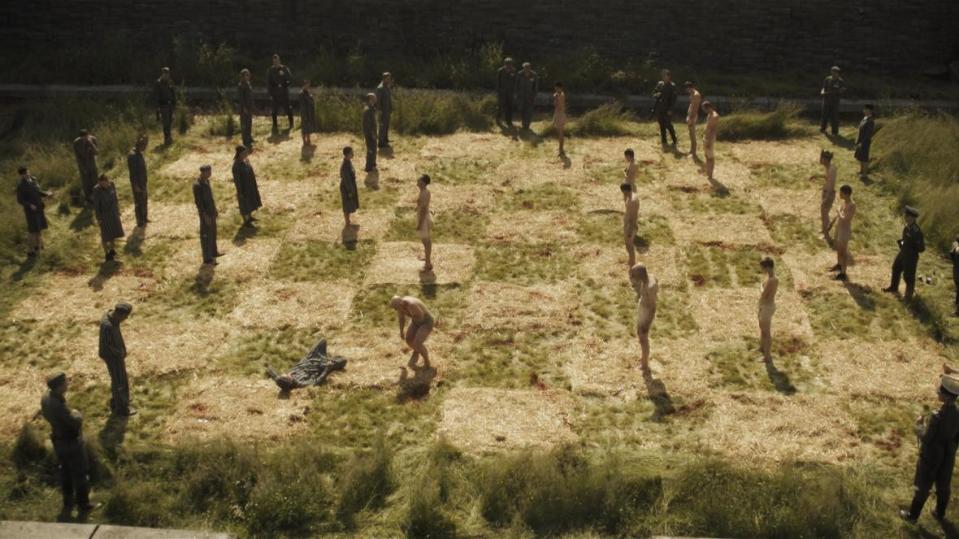Amazon's new drama series 'Hunters' is slammed over Auschwitz chess scene
Amazon Prime's new series Hunters has been accused of historical inaccuracies by the Auschwitz Memorial over a scene in which prisoners are forced to play a game of “death chess”.
The series, created by writer David Weil and produced by Jordan Peele, follows a group of Nazi hunters led by Al Pacino set in 1970s New York.
But one scene has been heavily criticised: in the first episode, a Jewish chess master held captive at Auschwitz is forced to play a game of chess on a mown chequerboard field with real prisoners being murdered.

The scene then features in the show's opening credits.
Read more: Will Poulter exits Amazon’s Lord of the Rings series
There is no record of any such event having taken place, and the Auschwitz Memorial has branded the scene as “dangerous foolishness and caricature”.

“Auschwitz was full of horrible pain & suffering documented in the accounts of survivors,” it said in a statement to Twitter.
“Inventing a fake game of human chess for @huntersonprime is not only dangerous foolishness & caricature. It also welcomes future deniers. We honor the victims by preserving factual accuracy.”
Auschwitz was full of horrible pain & suffering documented in the accounts of survivors. Inventing a fake game of human chess for @huntersonprime is not only dangerous foolishness & caricature. It also welcomes future deniers. We honor the victims by preserving factual accuracy. pic.twitter.com/UM2KYmA4cw
— Auschwitz Memorial (@AuschwitzMuseum) February 23, 2020
In replying to other tweets, it went on to describe the notion of fictionalising events of the holocaust as “disrespectful and dangerous”.
Weil, a new writer whose grandmother was a survivor of the Nazi death camp, has defended his choice to invent the scene.
“While Hunters is a dramatic narrative series, with largely fictional characters, it is inspired by true events,” he said in a statement. “But it is not documentary. And it was never purported to be. In creating this series it was most important for me to consider what I believe to be the ultimate question and challenge of telling a story about the Holocaust: how do I do so without borrowing from a real person’s specific life or experience?
“In speaking to the 'chess match' scene specifically… this is a fictionalized event. Why did I feel this scene was important to script and place in series? To most powerfully counteract the revisionist narrative that whitewashes Nazi perpetration, by showcasing the most extreme – and representationally truthful – sadism and violence that the Nazis perpetrated against the Jews and other victims.

“And why did I feel the need to create a fictional event when there were so many real horrors that existed? After all, it is true that Nazis perpetrated widespread and extreme acts of sadism and torture – and even incidents of cruel 'games – against their victims. I simply did not want to depict those specific, real acts of trauma.
“If the larger philosophical question is can we ever tell stories about the Holocaust that are not documentary, I believe we can and should.”
The show has come under some criticism for its tone and stylised violence.
The Guardian called it “dangerously insensitive”, while the Daily Telegraph argued that turning the cruelty of the Nazis into “schlocky popcorn entertainment sets a very odd tone”.
Amazon has recently also come under fire for continuing to sell anti-Semitic books on its site, particularly The Jewish Question In The Classroom by Julius Streicher, a Nazi propagandist.

 Yahoo Movies
Yahoo Movies 

